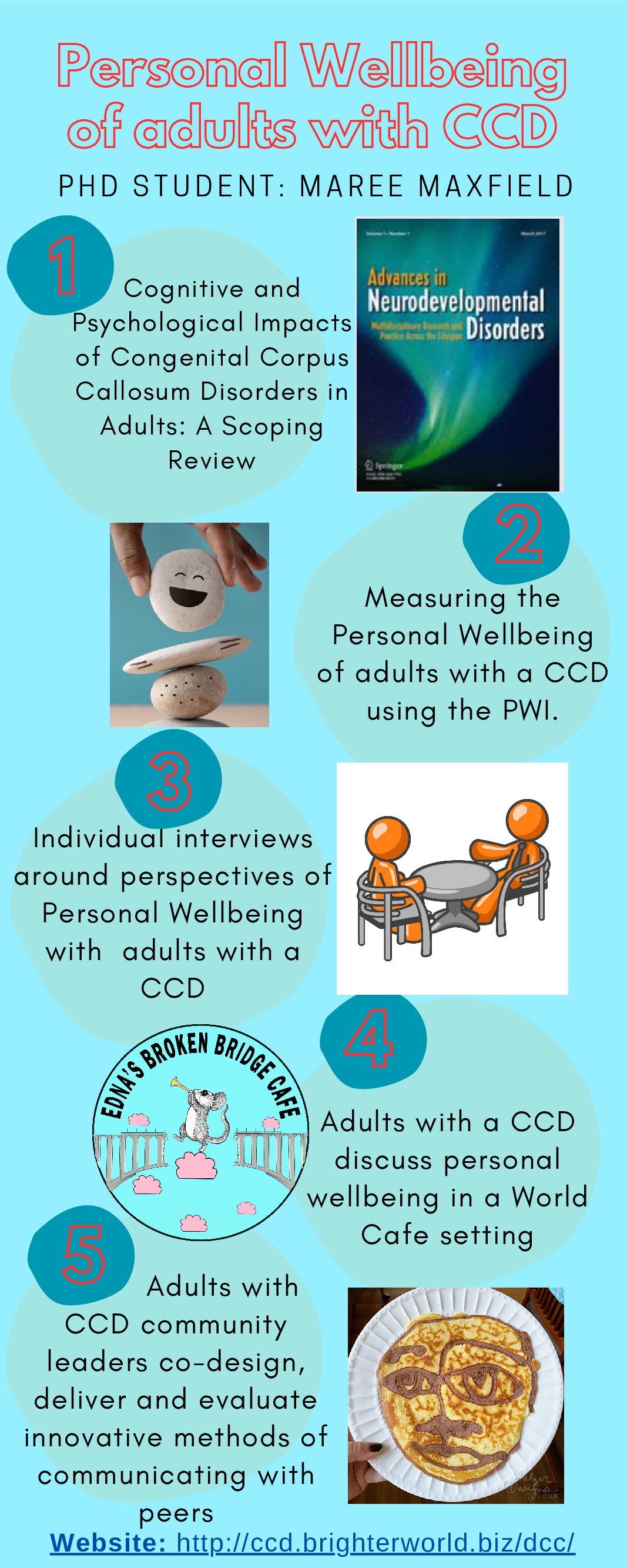A Good Life
How do the impacts of a corpus callosum disorder (CCD) affect the personal wellbeing of adults?
How can adults with a CCD communicate their perceptions of personal wellbeing and lived experiences to enhance understanding and support? You can download a research study about the lives of adults with a CCD here.
Corpus Callosum Disorders (CCDs) are extremely heterogeneous. This means that they have many different causes, different presentations in the brain and a very broad range of impacts, from mild to severe.
We know that adults diagnosed with a congenital Corpus Callosum Disorder (CCD) may face cognitive, physical and psychological challenges. A literature review reporting the cognitive and physical impacts of a CCD in adults can be found and downloaded here
There is no evidence-based research in which adults with a CCD have been asked how it affects their quality of life or personal wellbeing. If we want to know this, the best approach is to ask them about their own lives.To try to understand the elements that help to have a good life or the barriers faced, we need to ask the people who live with them.
To hear and understand how life could be improved for adults with DCC, we need to find the most effective methods for members of the community to communicate their ideas to us to represent their diversity. Participatory research can do this. Participatory research means that the people the research is about are also part of the team doing the research and have input at all stages. It is a method that is inclusive and collaborative at all stages from beginning to end.
Our participatory research program will explore the subjective quality of life (also known as personal wellbeing or happiness), of adults with corpus callosum disorders (CCDs). It will be codesigned and implemented in close collaboration with members of the CCD community as co-researchers.
In 2021-2022 we began the first research study in which we measured personal wellbeing using the Personal Wellbeing Index. In 2024 we published the results of the study. You can download it here.
